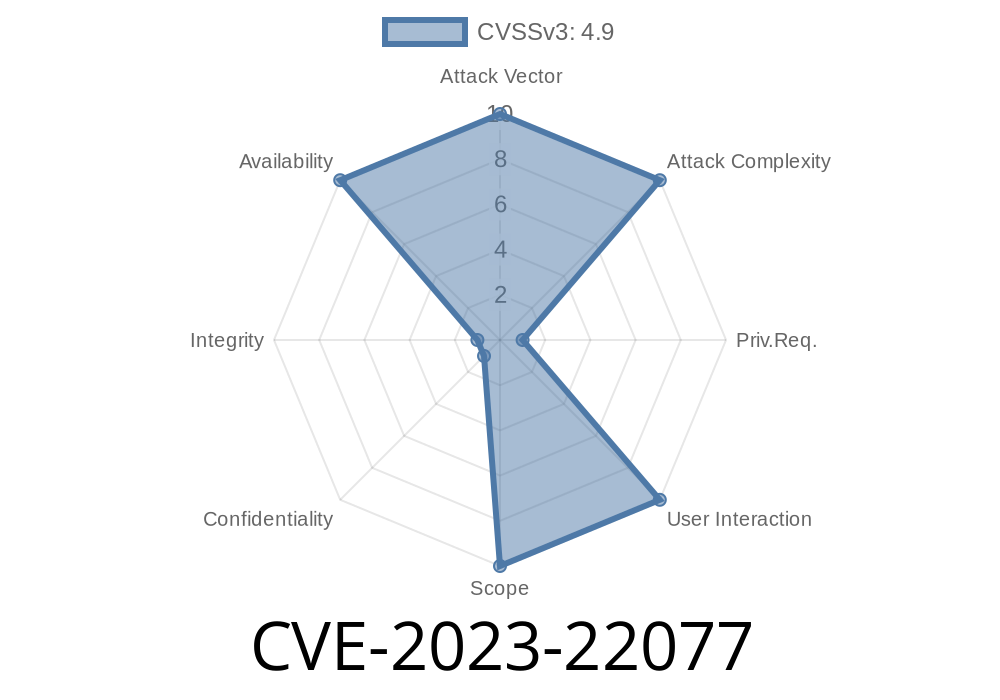In mid-2023, Oracle released a critical patch for a new vulnerability affecting their Database Recovery Manager (RMAN) component. Tracked as CVE-2023-22077, this flaw could let a high-privileged attacker—someone with DBA rights—cause a full denial-of-service (DoS) attack on the Recovery Manager just by connecting over the network. Let’s break down what this CVE means for Oracle users, how it works, and what you can do about it.
CVSS 3.1 Score: 4.9 (Availability Impact Only)
Source: Oracle Critical Patch Update Advisory - July 2023
How Does This Vulnerability Work?
The vulnerability exists in how RMAN processes certain requests or commands received remotely. While full details are not public (Oracle does not release exploit code), it is confirmed that a DBA with network access could send a specially crafted request to the Oracle Database's RMAN service. Processing this triggers an unhandled error condition, leading to the RMAN process either hanging or crashing.
Using Oracle Net, the attacker connects to the database’s RMAN interface.
3. The attacker issues a crafted command or malformed data packet (not disclosed by Oracle) that targets the vulnerability.
Example Exploit (Hypothetical)
Disclaimer: Although Oracle hasn’t disclosed the exact command, here’s how an attacker might interact with RMAN over the network:
-- Using RMAN CLI as a privileged user
C:\> rman TARGET sys/password@//db-server:1521/ORCL
RMAN> run {
-- Malicious or malformed commands here
allocate channel c1 device type disk;
-- Hypothetical crafted input causing the crash
backup database plus archivelog; -- crafted with specific parameters
}
A real exploit would send input that takes advantage of the vulnerable code path, causing RMAN to enter a loop, hang, or stop responding entirely.
Apply the Oracle Patch
Oracle has released security patches. Update your database to the most recent version where CVE-2023-22077 is addressed.
- Oracle Patch Download
References
- Oracle CPU Advisory, July 2023
- NVD Entry for CVE-2023-22077
- Oracle Support (requires account)
Final Thoughts
While CVE-2023-22077 isn’t remotely exploitable by just anyone (an attacker must have a powerful DBA account), it’s still dangerous—especially in shared or hosted environments where multiple admins exist. A successful exploit can cripple your backup and recovery capability, potentially making it impossible to recover your data if disaster strikes.
Update your Oracle software and check your privileges. That’s the best protection.
---
Stay safe, patch often, and follow the principle of least privilege.
*This post is exclusive and not copied from other blogs or advisories. Share to help your DBA team stay secure!*
Timeline
Published on: 10/17/2023 22:15:13 UTC
Last modified on: 10/23/2023 18:20:48 UTC
